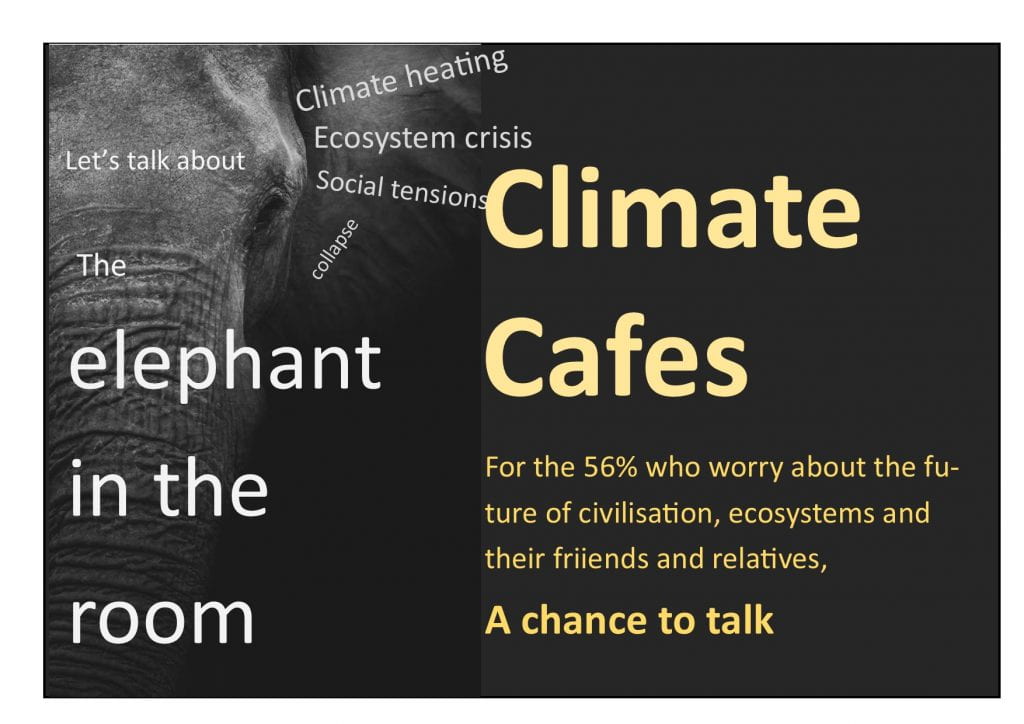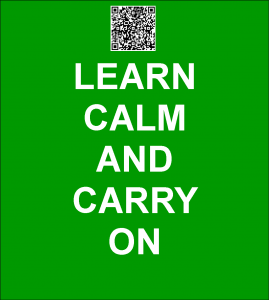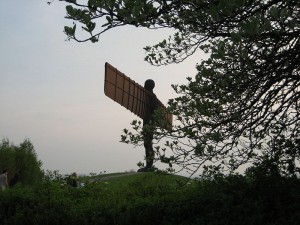At the ‘Shieling’ conference (Friday 1 March) we met to take counsel about urban spaces, community, active participation, well-being and how these do and don’t come together and how architecture and urban planning do or don’t work with all of that. Not to mention spirituality. Specifically this is in relation to the particular locale ‘Shieldfield’ whose name comes from an older English word ‘Shieling’.
“Shieling” is a medieval term for a place where cattle were grazed for the summer. Shielings typically had bothies built on them, -structures for people to live which were often made of materials that were found at hand in the vicinity: stone, wood, turf etc.
The conference title, then, is trying to gesture towards the idea of building something which is constructed from the neighbourhood’s materials.
One of the challenging thoughts is to keep in view the land on which our urban experience takes place (literally ‘place’!). This invokes ideas of commons -in Shieldfield we are on what was, until the enclosures, common land. And perhaps a bit of a theme was set in motion: then “sheep were more profitable than people” -and now all sorts of projects and forces are put ahead of the people who live here. So the idea of taking control of land use and considering who owns it and in what ways they ‘value’ it is important. Also how has the past use of land for resource extraction legated a degraded environment.
So this makes me wonder about the kind of spirituality we need to have in an urban area marked by fragmentation, deprivation, predatory forces, kleptocratic practices, political invisibility etc. An important idea is to keep these commonplace targets of urban activism literally grounded in the land. At the end of the day, the buildings and roads and common spaces sit on land and so the ecological, human-participative and perhaps even aesthetic dimensions are relevant.
Asking the question what, rather than sheep, is now being considered ‘more valuable’ than people. Maybe in Shieldfield, “students” might be part of the answer to that question because they are being housed in cheaply-built battery flats whose profits partly come from tax arrangements which allow money to be exported from the local economy (often globally and ‘offshore’). Of course, students are people but in this case they are felt to be displacing or intruding on those people who are already there and have a longer-term stake in the neighbourhood. (And, incidentally students are themselves being ‘battery farmed’ and becoming indebted in the process -the process is taking money from their future earnings). And the forces of gentrification may point to other things like selling housing and goods to more affluent people.
I’m reflecting on the word ‘shieling’ as an older word for dwelling (temporarily) around ones workplace and thinking about John 1 where ‘the word is made flesh and [shieled? or ‘bothied’] among us’. This does raise a question about sojourning and passing through as well as the nomadic experience of God’s people in the past and the way that has been valued in scripture.
Part of the vision for places could be named as ‘conviviality’. It is at the heart of the biblical narratives: Genesis 1 envisages a space made for teeming and sharing life together, the Laws promote it, Jesus embodied it. The further dimension of it is solidarity. I’m thinking that this can be characterised in Christian terms as conviviality plus determination to seek justice together, supporting one another to do so.
Clearly the biblical call for justice with especial attention to the canaries-in-the-mineshaft who are the poor. It is the poor and powerless who feel the effects of extractive economics first: they provide a map of kleptocratic practice and a way-in to diagnoses.
In relation to the land, we recognise that government-speak categorises it as ‘asset’ but a more biblical outlook would see it as something we hold in trust that we steward (a word capturing a sense for many of what Gen.1 envisages as the human task) on behalf of the wider community and future generations. There is a challenge to promote this viewpoint and even more so to embed it into government and financial instruments. Scottish land-sale laws (Scottish Land Fund etc) are worth looking at in order to learn about something of this can be enacted.
One of the repeated themes in the conference was ‘living the future now’. This functions as a way to characterise making decisions and lifestyle arrangements which reflect a hoped-for future. As a Christian I find this interesting because it is very like the eschatological ethic in Christian thought where we live now something of the way that the new creation will be.
I was also interested in the local voices I heard in the conference. Some of the younger people were articulating how they enjoyed the proximity to the city centre and the schools and community. An older voice was full of lament -grief- for lost community and the detriments experienced over the last 40 years. This raised a question about how we give expression to corporate grief of this kind and allow it to be heard and validated, genuinely. My intuition is that some cannot move on until this has happened and so they (and therefore we) are doomed to continue to process that grief in ongoing community interactions.
There was some discussion about settled versus/and passing through experience. Part of that was to acknowledge there is a danger of painting settled ‘ownership’ as good and the more nomadic as ‘bad’. Against that we might note that the biblical stories in many cases honour and validate the value of the nomadic versus the urban experience. But then the wider story arc ends in a renewed city. We need to be able to acknowledge that ‘settled’ experience can for some people become oppressive because of less than fully neighbourly behaviours and attitudes by those closest in proximity.
One phrase that someone mentioned was “Calling back the soul”. The idea here is that it takes time to call back to ourselves what is life-giving -not that it belongs to us such that we can command it to return, but that in the way things are such things will re-accrue if we give time and space and welcome.
An interesting point of reflection. One of the residents of the area brought along two maps which include the area. Neither named the are: there was no name on the map. In fact someone else pointed out, the neighbouring area of Ouseburn has started to lend its name to Shieldfield. It’s interesting how this seems to act as a symbol of the neglect and dilapidation of the are. A little discussion about whether doing something about this may ensue.
There is more to say and think on all these things but for now it suffices to catch a few of the ideas and themes that stood out to me ….




